Coinciding with a patch and an expansion, BATTLETECH has been updated for Linux. I’ve spent some time with both the base game and DLC and have come away with a lot to say.
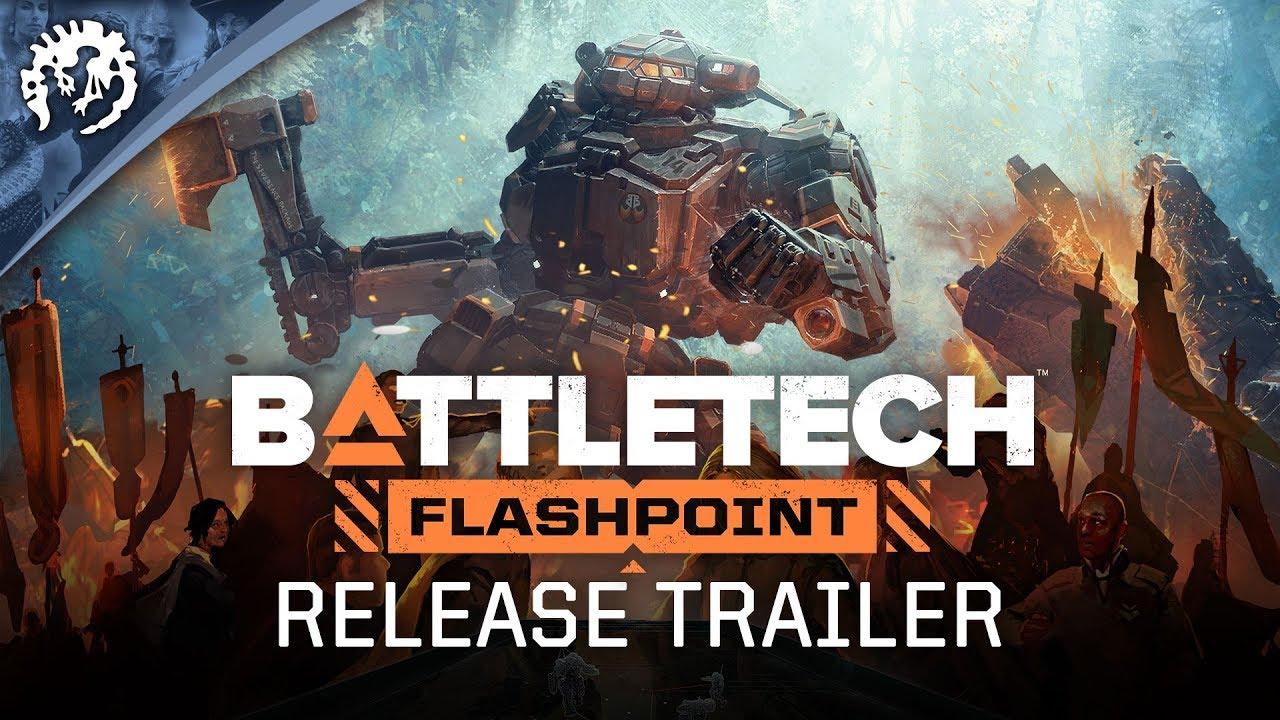
Direct Link
Note: Flashpoint DLC provided by Paradox Interactive and the base game is a personal copy I purchased.
BATTLETECH places players in the role of a captain of a mercenary company in a futuristic setting, going from star system to star system, generally blowing things up and trying to make money. The game was originally crowdfunded and released earlier in the year but the Linux version ended up being delayed until a beta was released just two months ago.
The core of the game are the turn-based tactical battles that take place between groups of giant robots. It’s a system that’s somewhat different than most tactical games with a focus on a smaller amount of units and managing things like heat and ammunition carefully. Move order is determined by initiative, which in turn depends primarily on your ‘Mech’s weight class. The in-game tutorial does a poor job of explaining the more subtle mechanics but playing a few missions and reading tool tips carefully was enough to get me up to speed.
There’s a whole shedload of ‘Mechs in the game, each within a particular weight class and with a default armament that helps it fulfill a specific role. The game encourages experimentation and swapping out parts and trying different options according to where you’re fighting is important. I’m not a min-maxer by any stretch so I’m not certain if there are combinations that are more powerful than others, but I think that there’s a good degree of flexibility that the game affords you. Pilots can also be swapped out at will and, as they often have different abilities, that can also open up new approaches to combat.
Battles can be nail-biting affairs as often your opponents area piloting similar ‘Mechs or may have the advantage of numbers. This isn’t an easy game by any stretch and knowing when to use abilities or when to execute tactical retreats is key to keeping your squad alive. A precise hit on a key system in a turn can often mean the difference between an easy victory or a bloody stalemate. Players like me, who may not be that familiar with the vast catalog with ‘Mechs, might find themselves scrambling for an effective counter when encountering a new opponent. In this sense the game can be a little overwhelming and could use a little more feedback and hints as to the strengths and weaknesses of something you encounter for the first time.
Occasionally, some of the randomized missions can be outright unfair. As you always control a maximum of four units, picking and choosing when to fight is important. More than once I had enemy reinforcements trigger after killing another enemy and then spawning in virtually on top of my units. Sure, I understand that an element of random surprise is typical in tactics games, but because most matches are about careful advance and positioning, it can feel frustrating to have that undone immediately. The end result is that the enemy scores free hits on you as you scramble to adjust which always feels cheap in a singleplayer game. Luckily, the multiplayer bouts are balanced and avoid reinforcements altogether.
The singleplayer content is split between a tactical skirmish mode and a full campaign/career mode. The latter see you doing much more than just fighting battles as you have to manage your mercenary company’s finances, crew morale, upgrades and the like. I generally enjoyed the story that was in the campaign though it wasn’t exactly a gripping narrative. There’s little random events that may happen while traveling that give the game some more personality and I think does an adequate job showing you what your crew is like.
Taking on contracts, allying with factions, discovering parts for new ‘Mechs is all fine and good. However, there are parts to the singleplayer that drag the game down as a whole. I found that the difficulty is uneven and often you’ll need to grind through smaller contracts before being able to take on things that are at your supposed difficulty level. That’s because repair costs as well as replacement modules can easily get very expensive depending on how much damage you’ve sustained. Add to that that your pilots may become injured and it’s therefore important to have similarly-leveled replacements. If you’re a fan of something like XCOM’s Long War mod, you won’t mind this slower pace but those who just want to see all the game has to offer may be at it for at least several dozen hours in a campaign.
There’s a lot to love visually about the game. Yes, the models and the textures could stand to be better. I hear you and agree. But the combat animations more than make up for it. Watching lasers fly across a map, a 60 ton robot use its jump jets and land on top of another one, or seeing robotic arms blown off is pretty neat. The sense of scale and destruction you’re unleashing with your units definitely feels right. The levels themselves range from exotic lunar landscapes to very familiar lush forests or hills. Zooming in a little too much can dispel some of the charm but, for the most part, it’s enjoyable to watch the game do its thing.
I haven’t really talked about the new content in Flashpoint and there’s a simple reason for that—I haven’t had the chance to play with it as much as I wanted. Most of the content is for experienced and hardened mercenary companies, coming in later in the campaign. As the career/campaign mode is already very long and the new flashpoint content is several dozen hours more, I’ve only just scratched the surface there. That said, I welcome the new types of missions and objectives as it can get a little stale doing the same types of missions over and over. It’s definitely worth getting if you’re already invested in the game and the addition of a new type of map biome, black market stores, as well as three new mechs, are also nice to have.
Since its launch earlier this year, the game has gotten a lot of spit and polish. There were complaints about the speed of animations and other tedious things but those have been more or less addressed. Balance issues have also been sorted in a satisfying way. The 1.3 patch that has released today has overhauled pilot abilities and addressed what would have otherwise been a paragraph or two of complaints in this review. There’s even a new “Career” mode that lets players skip the story elements and just work directly at being the best mercenaries they can. While I wish we had had BATTLETECH at launch, there’s certainly something to be said about getting a more polished experience out of the box.
BATTLETECH gets a solid recommendation from me despite its persistent issues with uneven difficulty. The core system feels good and there’s clearly been a lot of care put into its worldbuilding. Jordan Weisman, one of the original creators of the tabletop game in the 80s, was in charge of developer Hairbrained Schemes so that’s not unsurprising. It’s not a game for everyone and people who don’t really enjoy tactical games would do well to stay away, as BATTLETECH doesn’t hold your hand for very long. If you are willing to persist and forgive the duller moments of grind, then there's plenty of fun and memorable content to be enjoyed.
You can get BATTLETECH and its first expansion on Humble Store, Steam and GOG.
We originally said the Linux version was officially released as their emails said, but on release of the expansion and patch they're still saying it's a Beta. It does have a SteamOS icon on Steam and they say it's coming to GOG too (Humble gives a Steam key), along with bugfixes expected.
This game is one of my bigger disappointments. I backed their Kickstarter, which was advertising a Linux version. Now, I know, I know! A lot of developers say "We will support Linux!!!" and mean "Eh, we might do it a few years after the Windows release, but only if we're not working on another Windows game then." but HBS is a studio with a proven Linux track record and Paradox is probably THE most Linux friendly publisher there is. I really thought this to be a fairly safe bet.
They sent me the game key sure...it's collecting the digital equivalent of dust in my GOG library for how long now? A year?
I guess this just proves you can trust absolutely no one.
That's being a bit dramatic IMO, the game released in April and the beta has been out for two months already and I haven't noticed any problems apart from slow performance and the LC-ALL=C(as in many other unity games under linux) but I've been told that's on par with Windows performance.
if you try install via paradox launcher then....
.... Repository battletech-linux-64-failed-upload does not exist\ ...
This game is one of my bigger disappointments. I backed their Kickstarter, which was advertising a Linux version. Now, I know, I know! A lot of developers say "We will support Linux!!!" and mean "Eh, we might do it a few years after the Windows release, but only if we're not working on another Windows game then." but HBS is a studio with a proven Linux track record and Paradox is probably THE most Linux friendly publisher there is. I really thought this to be a fairly safe bet.
They sent me the game key sure...it's collecting the digital equivalent of dust in my GOG library for how long now? A year?
I guess this just proves you can trust absolutely no one.
That's being a bit dramatic IMO, the game released in April and the beta has been out for two months already and I haven't noticed any problems apart from slow performance and the LC-ALL=C(as in many other unity games under linux) but I've been told that's on par with Windows performance.
Dramatic perhaps, but we shouldn't forget just how low priority GNU/Linux has been. It was supposed to be in an alpha to backers, but never appeared. It was supposed to be simultaneous release (if I recall rightly, so do tell me if I'm wrong there), but that never happened. It's been stalled more than once for dubious reasons (there's their first expansion out before a proper, official, release on GNU/Linux). And it was all well funded, promises made, from their original kickstarter campaign. They shouldn't be getting freebies just because it's _finally_ out.
Fair enough, but without inside knowledge we can only speculate on why it was so delayed and I'm not giving it a free pass, just pointing out the obvious.
... Dramatic perhaps, but we shouldn't forget just how low priority GNU/Linux has been....
I am sure, there priority was about 2% in relation to the Windows release. And that is understandable. If they had problems and there plan was to optimistic, they must prioritize (in fact, they must do this all the time). It is that simple. Normal project business.
I can understand, that backers waiting for Linux-Releases, are disappointed. But to be honest, I would never back a Game. I know that 90% of software projects run into delays and other problems. And then they will never prioritize the OS with the 2% market share. Even if the backers from Linux are more than the 2%.
So it is always a high risk and the chance for disappointment is IMHO more then 80% and that even, if the devs want to fulfill there promises.
This game is one of my bigger disappointments. I backed their Kickstarter, which was advertising a Linux version. Now, I know, I know! A lot of developers say "We will support Linux!!!" and mean "Eh, we might do it a few years after the Windows release, but only if we're not working on another Windows game then." but HBS is a studio with a proven Linux track record and Paradox is probably THE most Linux friendly publisher there is. I really thought this to be a fairly safe bet.
They sent me the game key sure...it's collecting the digital equivalent of dust in my GOG library for how long now? A year?
I guess this just proves you can trust absolutely no one.
That's being a bit dramatic IMO, the game released in April and the beta has been out for two months already and I haven't noticed any problems apart from slow performance and the LC-ALL=C(as in many other unity games under linux) but I've been told that's on par with Windows performance.
Dramatic perhaps, but we shouldn't forget just how low priority GNU/Linux has been. It was supposed to be in an alpha to backers, but never appeared. It was supposed to be simultaneous release (if I recall rightly, so do tell me if I'm wrong there), but that never happened. It's been stalled more than once for dubious reasons (there's their first expansion out before a proper, official, release on GNU/Linux). And it was all well funded, promises made, from their original kickstarter campaign. They shouldn't be getting freebies just because it's _finally_ out.
One reason I really do like Proton is beeing just a bit more of an ordinary citizen..
I sometimes really don't enjoy beeing seen as part of an overly demanding minority.
Sorry if you don't mean it that way, but it "sounds" like that you think I'm being overly demanding. Like somehow my money is worth less because I use GNU/Linux. Which is really the core of the matter: Battletech was already funded and promised for everything I wrote, yet it's completely ok to ignore that because....GNU/Linux?
I think you ignore some facts.
1. It is not, that they did not deliver all there promises only an Linux. Look at the people complaining about the missing German translation. That was promised too.
2. They surely do not look at you personally. But if you must disappoint people, because of to optimistic planning, whom would you dissapoint? The 98% of your customers or the 2%?
3. And yes, the money from 1000 Linuxers is worth less, then the money 100000 Windows-Users....
So I guess if I'm part of a demanding minority because I expect a company to do what they've been more than fully paid to do....uh....thanks, I guess.
I think you are! Simply because what I told above. When it comes to delays (show me the Softwareprojects where this does not happen...) you have to disappoint a group of your customers. Which group will that be?
I doesn't seem to me, that they wanted to care less for Linuxusers.
Oh, and "Proton" doesn't help you here. Other than it's playing a Windows game, and seeing as you mentioned it other than wine, it's also a Windows game on Steam (realistically). Which is of no help bringing new games to GNU/Linux because you're then reliant on Windows still, and on top of that it's Valve who control your gaming, not you. Which maybe you're fine with (even I tolerate it), but seeing as this specifically is for a GOG release as well, then it's not for everyone (I buy single player games on GOG where possible simply because I get more control over the game and its updates).
Think a moment over that. If we just had GOG and Valve wouldn`t care for Linux. How much games would we have on Linux? I guess there would be a great nothing, which you than could control...
HB screwed up. Broken promises, long delays, and dubious communcation about it. But they're being given a free pass because people believe their money isn't worth as much as someone else's.They sure did and I was as annoyed as you still seem to be, but in the end they started comunicating again and delivered. It is time to bury the hatchet.
That does not mean we should forget what has happened and not draw our conclusions concerning pre-financing future releases, but there a much more offending players out there than a small company that delivered a delayed product.
The game is good. It'a native Linux title. What else can we ask for?
This game is one of my bigger disappointments. I backed their Kickstarter, which was advertising a Linux version. Now, I know, I know! A lot of developers say "We will support Linux!!!" and mean "Eh, we might do it a few years after the Windows release, but only if we're not working on another Windows game then." but HBS is a studio with a proven Linux track record and Paradox is probably THE most Linux friendly publisher there is. I really thought this to be a fairly safe bet.
They sent me the game key sure...it's collecting the digital equivalent of dust in my GOG library for how long now? A year?
I guess this just proves you can trust absolutely no one.
That's being a bit dramatic IMO, the game released in April and the beta has been out for two months already and I haven't noticed any problems apart from slow performance and the LC-ALL=C(as in many other unity games under linux) but I've been told that's on par with Windows performance.
Dramatic perhaps, but we shouldn't forget just how low priority GNU/Linux has been. It was supposed to be in an alpha to backers, but never appeared. It was supposed to be simultaneous release (if I recall rightly, so do tell me if I'm wrong there), but that never happened. It's been stalled more than once for dubious reasons (there's their first expansion out before a proper, official, release on GNU/Linux). And it was all well funded, promises made, from their original kickstarter campaign. They shouldn't be getting freebies just because it's _finally_ out.
One reason I really do like Proton is beeing just a bit more of an ordinary citizen..
I sometimes really don't enjoy beeing seen as part of an overly demanding minority.
Sorry if you don't mean it that way, but it "sounds" like that you think I'm being overly demanding. Like somehow my money is worth less because I use GNU/Linux. Which is really the core of the matter: Battletech was already funded and promised for everything I wrote, yet it's completely ok to ignore that because....GNU/Linux?
So I guess if I'm part of a demanding minority because I expect a company to do what they've been more than fully paid to do....uh....thanks, I guess.
Oh, and "Proton" doesn't help you here. Other than it's playing a Windows game, and seeing as you mentioned it other than wine, it's also a Windows game on Steam (realistically). Which is of no help bringing new games to GNU/Linux because you're then reliant on Windows still, and on top of that it's Valve who control your gaming, not you. Which maybe you're fine with (even I tolerate it), but seeing as this specifically is for a GOG release as well, then it's not for everyone (I buy single player games on GOG where possible simply because I get more control over the game and its updates).
I didn't aim at you specificially. It was more a reaction to something I see very often. I'll explain..
Of course you have a point saying they delayed, and they have been fully paid for what they promised to deliver, but they delayed the whole thing, even the Windows version. I don't think Harebrained Schemes planned those delays. They happened because something went not according to plans. Backers can blame them now for their unrealistic planning, but let's be honest, it's crowdfunding. It almost never goes completely according to plans.
Then they released the Windows version. Now Linux and Mac backers can blame them that their version got delayed even more, but like most developers using 3rd party engines HS decided to concentrate on the development platform and then later port to different platforms. In my opinion this make sense, because it makes no sense to make porting efforts for issues that get fixed by Unity along the way. At some point they had a completed Windows version, and porting busyness could start. Should they have delayed the release of the Windows version until the ports are ready? I don't think so.
First day support is not realistic in a lot of cases. Short delays are realistic with a ready Windows version, and when there are no big problems porting the game. Even longer delays are realistic when the Windows version had to be released prematurely. I don't think we get anything demanding to be first class citizen. We are simply too few. What we get when we start demanding things is what Larian did after their problems with Linux support of DOS1. Beyond the porting problems they had some real financial problems while we demanded the promised Linux version. They learned from that to never promise ports again.
Proton helps us in two ways:
First, the often quoted hen/egg question. We get more users with more compatible games. New Linux users won't care if the games they can play with Linux are native or not. I don't care a lot! More users will get us more support in the long run.
Second, with Proton Linux users are normal citizen. Priority 1b instead of 2 or 3.
Divinity Original Sin 2 runs on Proton with a little help.
Anyone want to play?
Last edited by _J_30000 on 30 Nov 2018 at 7:47 am UTC
BtW can we go back to talking about Battletech, PPCs & LRMs and blowing Mechs :P
Anyone want to play?
You mean "they vs. it" stuff or other SJW toplics? :P
Sorry I've lost my interest in the game long ago. No time for late-to-the-party betas of dubious quality. :(
Proton helps us in two ways:
First, the often quoted hen/egg question. We get more users with more compatible games. New Linux users won't care if the games they can play with Linux are native or not. I don't care a lot! More users will get us more support in the long run.
Second, with Proton Linux users are normal citizen. Priority 1b instead of 2 or 3.
First argument is arguable. Remember, Linux is only platform where emulation (I'll use this word for simplicity and generalization, I know that Wine is not an emulator) became a really big thing due to its history. On every other platform customers are used to being served first-class, with full official support and other benefits. Majority of them won't accept the fact that now they have to run games through some weird translation layer and just hope for the best or apply hacky workarounds just to play the game that they were playing before with ease.
You are relying on Wine because you're used to emulating games and thus rejecting support, because for a long time it was the only way to play most games on Linux, but most of the gamers on other platforms won't do it. Without support from gamedevs Linux as a gaming platform won't attract them.
And second argument is completely wrong. Actually, Proton users are not on any priority list, since for most games Proton is unsupported. If something in Proton breaks and game stops working, the parties involved will reply to you with something like this:
1) Valve: "We didn't support this game"
2) Original dev: "I don't know what Proton is"
3) Wine devs: "We don't hold any responsibility for Proton"
So, in case of breaking you're not entitled to expect some help or compensation, you're entitled only to quietly cry in the corner. I fail to see how it is a "Priority 1".
I was speaking of the whitelisted games there, which will be supported by Valve, and which are promised to become more to a point to "almost all" Steam games. Perhaps my later reference to a not (yet) whitelisted game (DOS2) made that unclear.
Do hope the paradox update their repo's some time soon.....
if you try install via paradox launcher then....
.... Repository battletech-linux-64-failed-upload does not exist\ ...
it now appears in the list, but refused to download the program - manually logging in and out of the paradox launcher fixed this for me, it is now downloading the files -- fingers crossed it will work!
after a long and arduous download Battletech v1.3 is downloaded but flashpoint not there yet, although it shows that I do own flashpoint on paradoxplaza - but think this is a paradox launcher issue
Last edited by _J_30000 on 1 Dec 2018 at 1:35 pm UTC
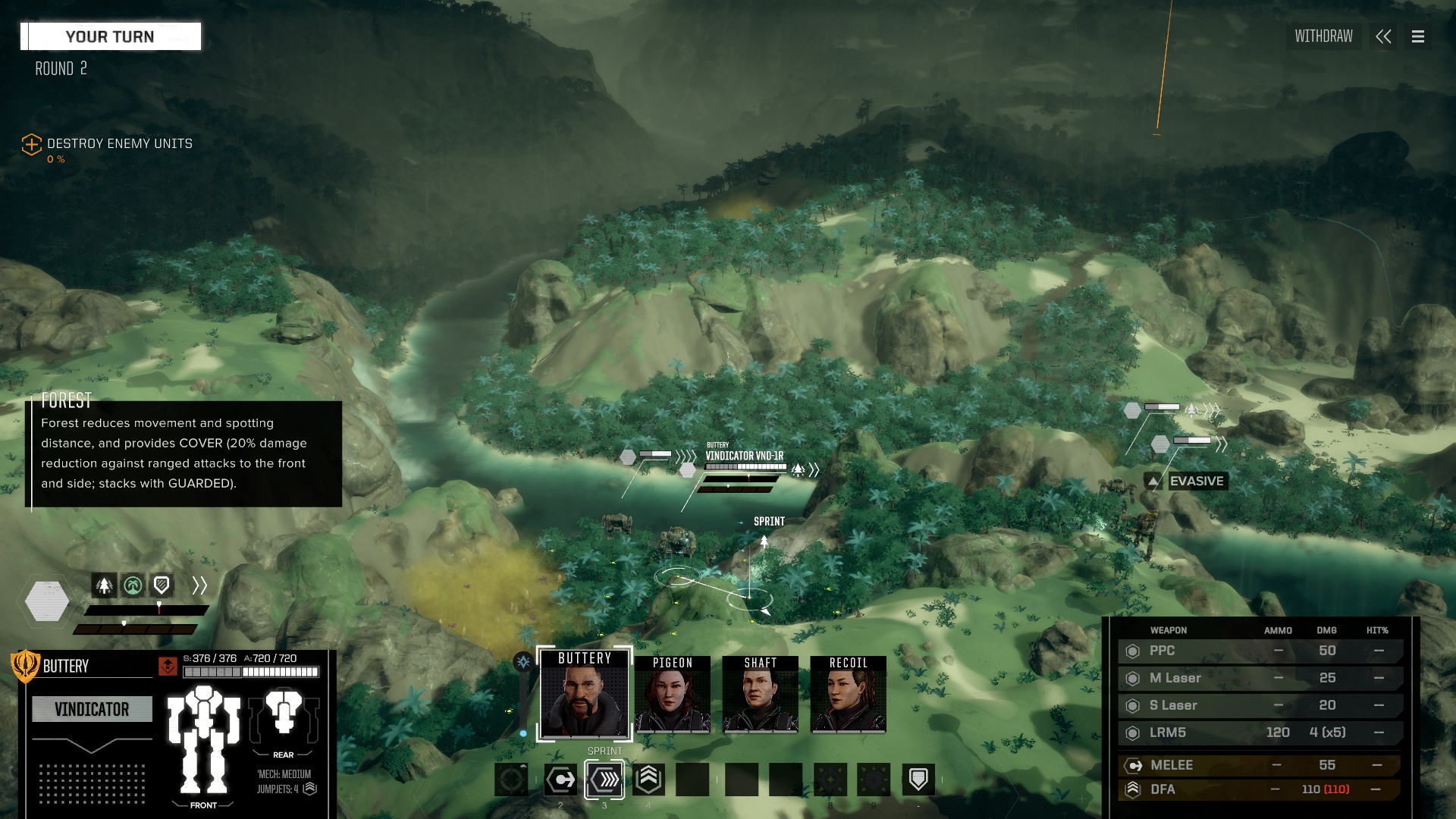
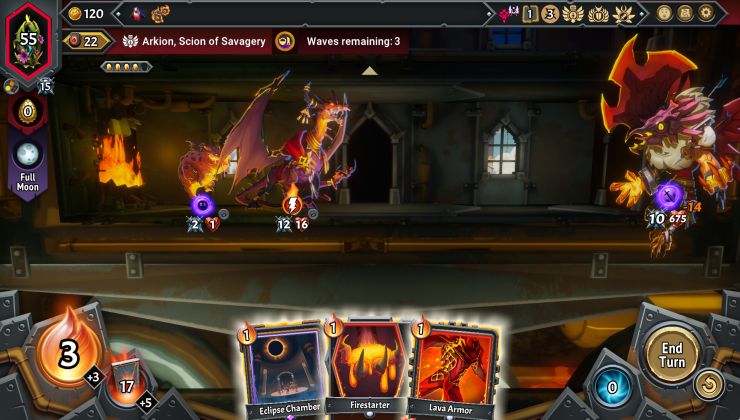
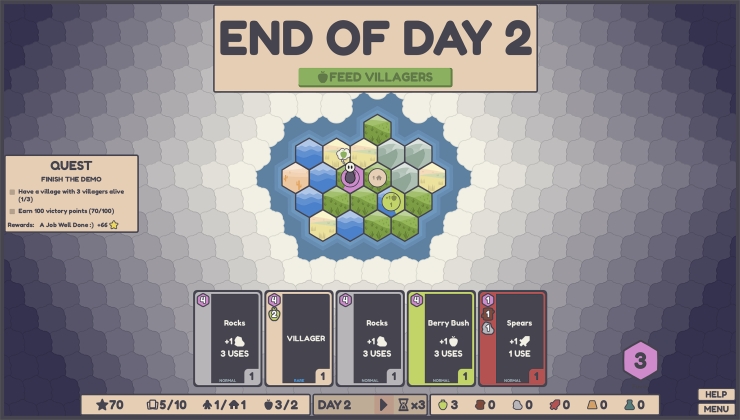
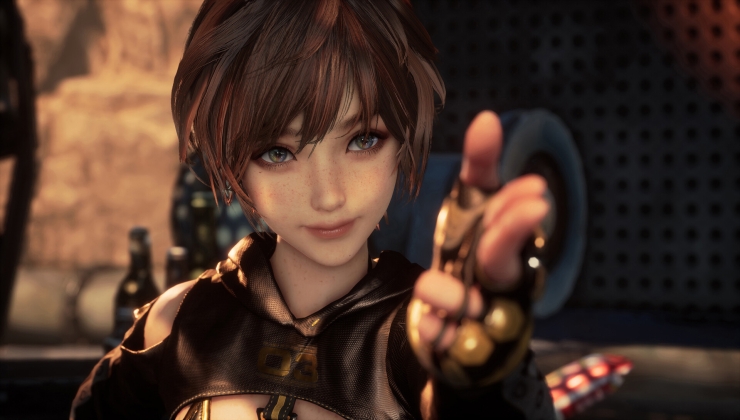
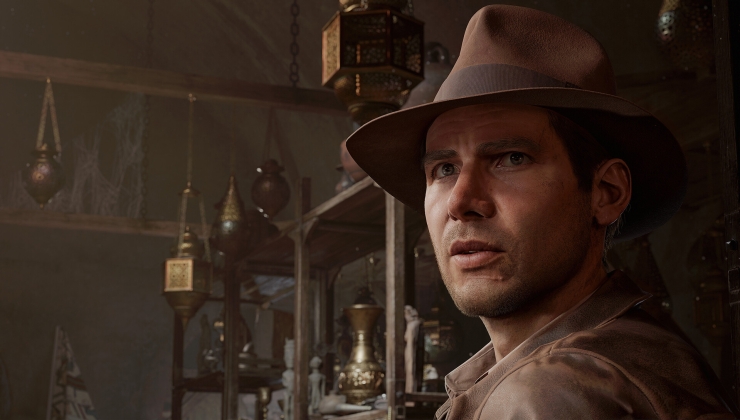




 How to set, change and reset your SteamOS / Steam Deck desktop sudo password
How to set, change and reset your SteamOS / Steam Deck desktop sudo password How to set up Decky Loader on Steam Deck / SteamOS for easy plugins
How to set up Decky Loader on Steam Deck / SteamOS for easy plugins
Oh and the name doesn't mean anything but coincidentally could be pronounced as "Buttery" which suits me just fine.
See more from me